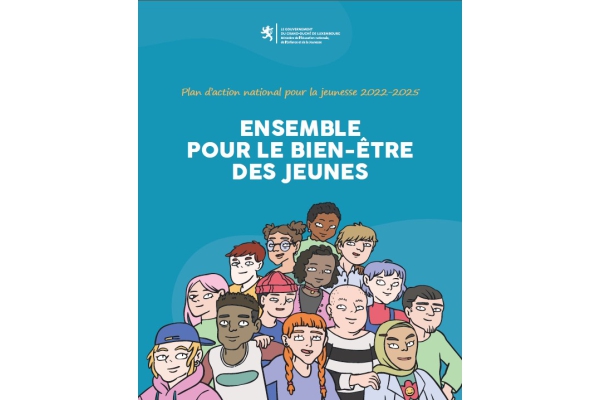 Credit: MENEJ
Credit: MENEJ
On Monday 27 June 2022, the new youth pact (Jugendpakt) was launched by Luxembourg's Minister of National Education, Children and Youth, Claude Meisch, in Esch-Belval.
This national action plan for youth 2022-2025 was drawn up by the Youth Service in collaboration with actors in the field and young people. It focuses on personal development and strengthening the socio-emotional skills of young people.
A strategy for promoting the well-being of young people
For years, the essential objective of education policy has been to ensure the empowerment of young people. After two years of the COVID-19 pandemic and the publication of the national report on the situation of young people in Luxembourg in June 2021, it was important to define concrete measures to maintain and improve the well-being of young people: “The pandemic has shown a again the importance of well-being among our young people. But it is also important that we all actively contribute to it: at school, in non-formal education and in the family. With the 2022-2025 youth pact and the many concrete measures surrounding it, we are giving a signal and a binding framework to make strong young people strong adults,” said Minister Meisch.
This youth pact, with its 21 concrete measures and actions, will be the framework for the implementation of the priorities selected. The objective of this national action plan, but also of youth policy in general, is to offer young people prospects for the future and to help them feel good about themselves and encourage to get involved. Young people are full members of our society, and they must be heard and thus actively participate in its development. The strategy for promoting the well-being of young people described in the Youth Pact 2022-2025 is structured around three priority axes.
School well-being
In schools, there is a need to create an environment and a climate where young people can meet and develop social skills and resilience. In this context, it is important to further improve the coordination of psycho-socio-educational services and to anchor them even more in high schools. Pupils' access to psycho-socio-educational services, in particular to SePAS, will be adapted and facilitated.
Strengthening non-formal education
Youth work is based on the pedagogical principles of non-formal education and constitutes an important pillar of the personal and social development of young people. Relational work with young people is an essential element and the quality of this offer largely depends on the educators. In this context, it is important that skills and know-how, particularly in terms of well-being, are continuously developed. In this sense, expertise and continuing education in the two thematic areas of physical health and digital health will be strengthened.
Joint work and networking of the various actors
The various actors who are particularly committed to youth all have the same objective: to help and support young people.
The exchange between the various psycho-socio-educational professionals is therefore essential to coordinate the various actions aimed at the well-being and support of the mental and physical health of young people.
To do this, it is important to facilitate the networking of hidden actors. In this sense, pathways need to be strengthened between formal and non-formal institutions. It is a question of developing appropriate methods and means for common activities which contribute to the well-being of young people. At the same time, the visibility of existing offers and measures at different levels must be improved.
Further information on the Youth Pact 2022-2025 is available online via: http://edulink.lu/hshb.








